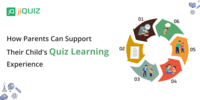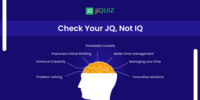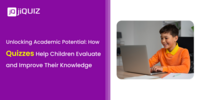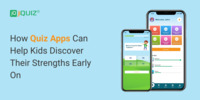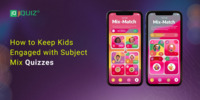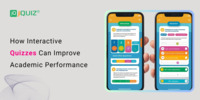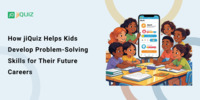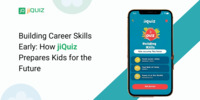- Jun 09, 2025
- Career & Skills
- 502
Share this post on:
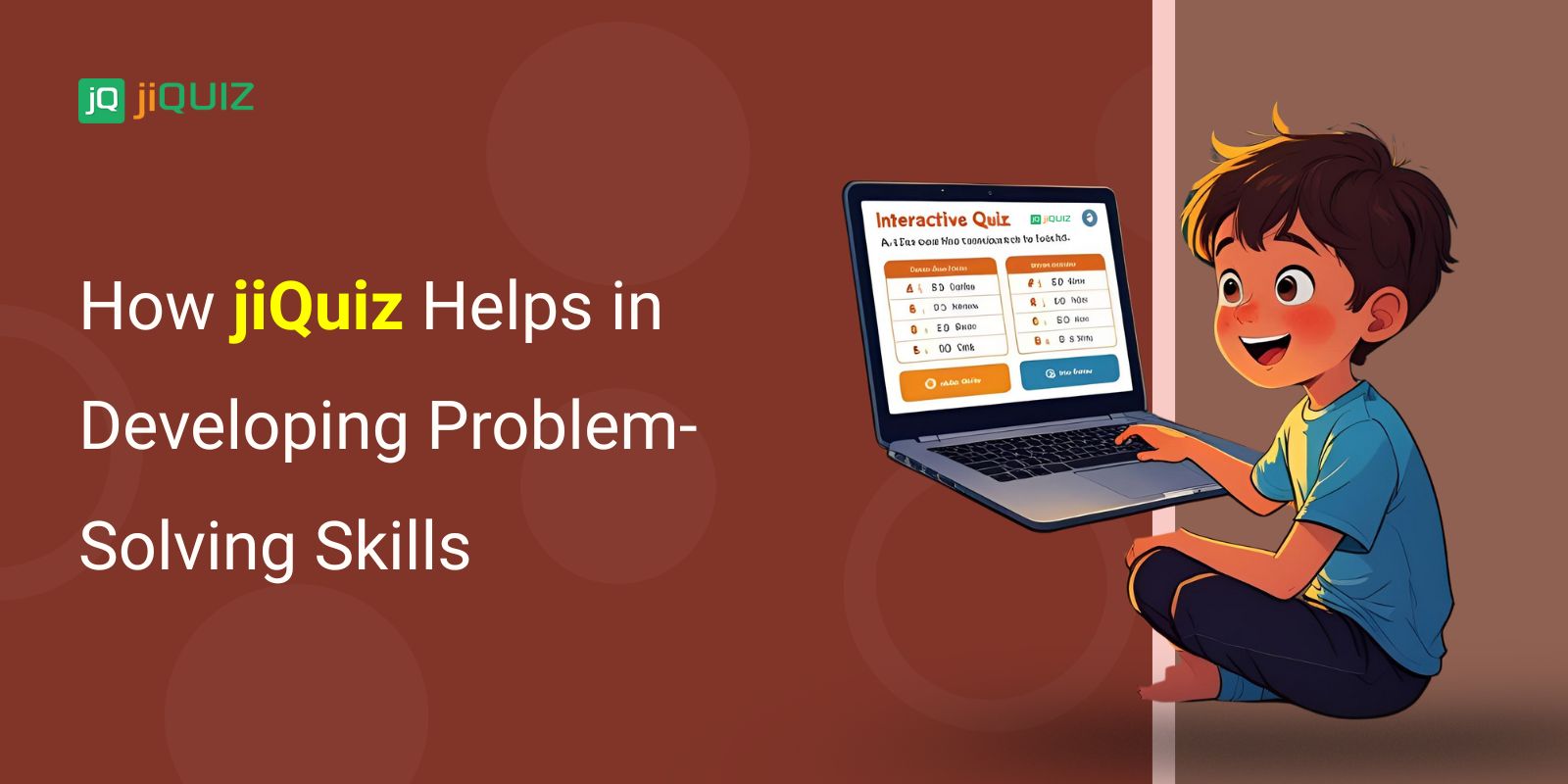
Today, the world is changing fast, and problem-solving is more important than ever. Whether it's handling job issues or daily problems, knowing how to think clearly, find answers, and make smart choices is a must. School teaches a bit about this, but many people still feel unprepared for tough situations. That’s where platforms like jiQuiz come in. They’re changing the way we learn by helping us build strong problem-solving skills. In this blog, we’ll explore how jiQuiz makes learning these skills easier and more fun.
Why Problem-Solving Skills Are Declining
Before we explore the solution, let's acknowledge the problem. Several factors contribute to a perceived decline in problem-solving skills:
- Over-reliance on Technology: While technology offers incredible convenience, it can also stifle independent thought. Instant access to information can discourage critical analysis and encourage passive learning. Why struggle to figure something out when you can simply Google it?
- Standardized Testing Focus: Educational systems often prioritize rote memorization and test-taking strategies over genuine understanding and critical thinking. Students are taught what to think, not how to think.
- Lack of Real-World Application: Many academic concepts remain abstract, lacking clear connection to practical, real-world applications. This makes it difficult to translate knowledge into action.
- Fear of Failure: A culture that penalizes mistakes can discourage individuals from taking risks and experimenting with different approaches – crucial elements of problem-solving.
The consequences of this trend are significant. Individuals lack the confidence to tackle challenges, businesses struggle to innovate, and society as a whole is less adaptable to change. We need tools and methodologies that actively build these skills, and that's where platforms like jiQuiz can make a real difference.
Introducing jiQuiz: A Different Approach to Skill Development
jiQuiz isn't just another quiz platform; it’s a learning environment designed to actively engage users in problem-solving scenarios. It distinguishes itself through several key features:
- Scenario-Based Learning: Unlike traditional quizzes that focus on factual recall, jiQuiz presents users with realistic scenarios requiring analysis and decision-making. These scenarios are often multi-faceted, demanding a nuanced understanding of the situation.
- Branching Logic & Consequences: The outcomes of choices made within a jiQuiz scenario aren't predetermined. Branching logic means different choices lead to different paths, with varying consequences. This immediately introduces the concept of accountability and the importance of careful consideration.
- Detailed Feedback & Explanations: The system provides more than just "right" or "wrong" answers. Detailed feedback explains why a particular choice was effective (or ineffective), highlighting the underlying principles and thought processes involved.
- Adaptive Difficulty: jiQuiz often incorporates adaptive learning algorithms. This means the difficulty of the scenarios adjusts based on the user’s performance, ensuring a challenging but achievable learning experience.
- Variety of Subject Matter: While specialized areas can exist, jiQuiz scenarios are often broad, covering areas from business strategy and leadership to personal finance and ethics, building transferable skills applicable to a wide range of contexts.
How jiQuiz Specifically Develops Key Problem-Solving Skills
Let's break down how jiQuiz’s features translate into concrete skill development.
1. Analytical Thinking & Critical Evaluation:
- Quiz Complexity: jiQuiz scenarios are designed to be ambiguous and require users to sift through large amounts of information. They must identify key data, distinguish between relevant and irrelevant details, and recognize underlying assumptions.
- 'What If' Scenarios: Many scenarios prompt users to consider "what if" situations – forcing them to analyze potential outcomes and anticipate potential problems.
- Feedback on Reasoning: The detailed feedback isn’t just about the outcome of a choice; it assesses the reasoning behind it. Did the user consider all relevant factors? Did they identify potential biases?
2. Decision-Making Under Pressure:
- Time Constraints (Optional): Some jiQuiz scenarios incorporate time limits, simulating the pressure of real-world situations. This forces users to make quick decisions based on incomplete information.
- Risk Assessment: Scenarios often present choices with varying degrees of risk and reward. Users learn to evaluate potential outcomes and weigh the pros and cons of different actions.
- Dealing with Uncertainty: Many real-world problems lack clear-cut solutions. jiQuiz scenarios often reflect this ambiguity, teaching users to make decisions in the face of uncertainty.
3. Creative Thinking & Innovation:
- Multiple Solution Paths: jiQuiz rarely presents scenarios with a single "right" answer. Instead, it encourages exploration of different solution paths and innovative approaches.
- 'Outside the Box' Thinking: Some scenarios explicitly reward unconventional thinking and challenge users to break free from established patterns.
- Learning from Mistakes: The branching logic means that "wrong" choices don’t necessarily lead to failure. They often provide valuable learning opportunities and inspire creative problem-solving.
4. Communication & Collaboration
- Justifying Decisions: If the platform supports team-based scenarios, users are often required to justify their decisions and explain their reasoning to others.
- Considering Different Perspectives: Team-based scenarios can expose users to different viewpoints and encourage them to consider perspectives other than their own.
- Conflict Resolution: Collaborative problem-solving can also involve navigating disagreements and finding compromises.
Beyond the Quiz: Integrating JiQuiz into a Broader Learning Strategy
While jiQuiz is a powerful tool on its own, its effectiveness is amplified when integrated into a broader learning strategy. Here’s how:
- Debriefing and Discussion: After completing a jiQuiz section, dedicate time for debriefing and discussion. Talk about the choices made, the reasoning behind them, and the potential consequences.
- Real-World Application: Encourage users to identify real-world situations where they can apply the problem-solving skills they've developed through jiQuiz.
- Reflection and Self-Assessment: Prompt users to reflect on their strengths and weaknesses as problem solvers and to identify areas for improvement.
- Combine with Traditional Learning: JiQuiz shouldn’t replace traditional learning. Instead, it should complement it, providing a practical and engaging way to apply theoretical knowledge.
Conclusion: Investing in Problem-Solving Skills for a Brighter Future
In today’s world, where things are always changing and can be hard to understand, learning how to solve problems is more important than ever. Apps like jiQuiz make learning fun and interesting while helping kids think better, be creative, and make smart choices. These tools do more than just help kids memorize facts—they teach them how to think and solve real-life problems. By using smart learning methods and encouraging problem-solving, we help people face challenges, come up with new ideas, and create a better future. Teaching problem-solving is a smart way to build a stronger and more successful society.

